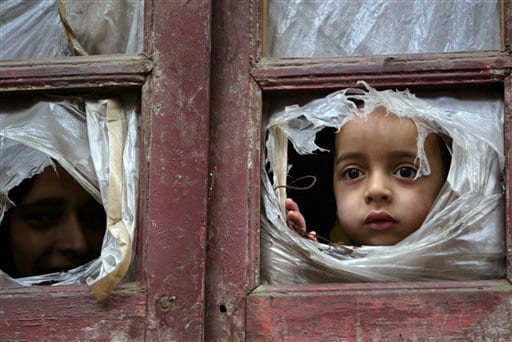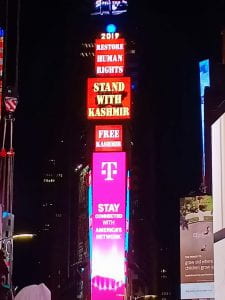
The Kashmir region in South Asia, once known as the “Heaven on Earth”, has been under dispute since 1948. Recently, human rights abuses have escalated as a result of the Indian government stripping the autonomy of Kashmiris through the removal of Article 370. For more than two months people have been detained in their homes under a curfew with limited access to the outside world. The responses to this crisis have been mixed, and this post unpacks some of the different reactions around the world.
Experts appointed by the UN’s Human Rights Council expressed their concerns over the government-imposed curfew, communication shutdown, use of force by troops, movement restrictions, and the arrest of political leaders and human rights defenders in the region. They reminded the Indian authorities that the restrictions imposed by them were against the “fundamental norms of necessity and proportionality” and violated Article 19 of the Universal Declaration of Human Rights, which ensures the right to freedom of opinion and expression. The communication blackout and restrictions on peaceful gatherings were deemed inconsistent with their basic rights. Additionally, the use of live ammunition on unarmed protestors could violate the right to life and is permissible “only as last resort and to protect life” according to the experts. The situation was referred to as a “collective punishment” for civilians without the pretext of any breach and the Indian government was urged to lift the brutal curfew as reported by the Council.
One of the most notable instances where the Kashmir issue was brought up was the 74th session of United Nation’s General Assembly (UNGA) in New York City last month. Chinese foreign minister Wang Yi, Turkish President Tayyab Erdogan, Malaysian Prime Minister Mahathir Mohamad, and Pakistan’s Prime Minister Imran Khan were the ones to raise the Kashmir issue on the world stage. PM Khan exceeded his allowed time to speak for Kashmir and urged the UN to take action. He demanded that India lift the inhumane curfew and reminded the world and the UN of their responsibility to take action against the ongoing violence against innocent civilians. He also warned that
“When a nuclear-armed country fights to the end, it will have consequences far beyond the borders. It will have consequences for the world. That’s not a threat, it’s a fair worry. Where are we headed? I’ve come here because this is a test for the United Nations. You guaranteed the right to determination of the people of Kashmir. You have a responsibility.”
Indian Prime Minister Narendra Modi avoided any mention of the atrocities and his government’s actions in Kashmir during his speech while thousands of people protested outside the UNGA. The protestors included a wide range of South Asian organizations and carried banners opposing the “military occupation” of Kashmir and “disenfranchisement of seven million Kashmiris”. They chanted slogans demanding Azaadi meaning “freedom” for the victims. In addition to the people of South Asian descent, the protest also included concerned North Americans and organizations like Black Lives Matter, Jewish Voice for Peace NYC, Hindus for Human Rights, India Civil Watch, and the Indian American Muslim Council.
https://www.youtube.com/watch?v=b-Gmmn_a25Q
Amnesty International also launched a Let Kashmir Speak petition asking the Indian govt to put humanity first and let the people of Kashmir speak by lifting the communications blackout. Kumi Naidoo, Secretary General of Amnesty International said that “The people of Jammu and Kashmir should not be treated as pawns in a political crisis, and the international community must come together to call for their human rights to be respected.” Amnesty also tweeted that “the unilateral decision by Government of India to revoke Jammu & Kashmir’s special status without consulting J&K stakeholders, amidst a clampdown on civil liberties & communications blackout is likely to increase the risk of further human rights violations & inflame tensions.”
While responses by the UN and international organizations have remained limited, people have continued to mobilize to bring attention to the ongoing humanitarian crisis. Recently Times Square in New York City, one of the busiest pedestrian intersections in the world, highlighted the Kashmir issue by slogans saying, “Restore Human Rights”, “Stand with Kashmir”, and “Free Kashmir” at the end of September. Reports suggest that it was sponsored by the collective effort of the Pakistani community in the United States.

Grassroots mobilization is also occurring within Birmingham locally, among residents of Kashmiri origin and those having families in the blocked territory. They conducted an awareness and fundraiser dinner in partnership with the Birmingham Islamic society this Sunday to explain the crisis in Kashmir and to collect funds to lobby against the Indian government’s violence. The description of the event stated that
“The ongoing crisis in Kashmir has barely received any media coverage although it’s currently one of the worst massacres in the world. Not only is the Indian Government responsible for over 100,000 Kashmiri people murdered and over 10,000 Kashmiri women raped, but they have implemented a blackout on all of Kashmir preventing people from using internet and phones to contact the outside world. This event will provide you with more awareness as well as collect any funds, if you can, to lobby.”
At UAB, the Muslim Student Association (MSA) is raising money for the Kashmir cause at their annual Fastathon. According to the organization, “This year, the MSA is raising money for the humanitarian crisis in Kashmir. For every pledge to fast, people in the community will donate money for the cause. Kashmir valley, Jammu and Kashmir is an ‘open air prison’. As soon as this lockdown ends, there will be an immense and immediate humanitarian need. Pledge to fast for a day and help us feed, provide medical supplies, and raise awareness for the Kashmiri refugees”. They have also been conducting bake sales to raise funds for Kashmir relief in the past few weeks outside the Mervyn H. Sterne library.
People around the world have been showing their support for Kashmiris according to their own resources and levels of influence. Unfortunately, the situation has not been improved and millions of people are still being held hostage in their homes and neighborhoods. World authorities, powers, and humanitarian organizations need to take action against these human rights violations and project their voice to a larger, global audience in order to mobilize relief efforts. The world needs to recognize the gravity of the crisis and its consequences to take immediate and appropriate action.
